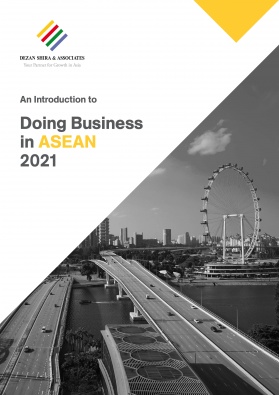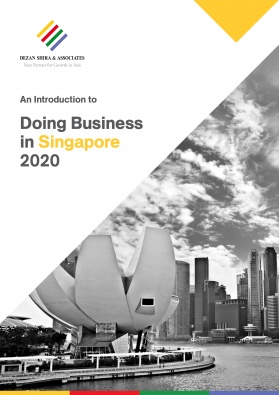The End of Britain’s EU Transition Period is Set to Boost Economic Ties with Asia
By Bob Savic
- British businesses should be looking to Singapore to gain ASEAN market access
- Asia is the UK’s fastest-growing export market
- Growing opportunities for UK businesses in Bangladesh, Cambodia, Laos, India, Malaysia, and Vietnam
The United Kingdom, comprising England, Scotland, Wales, and Northern Ireland, will be applying new trading rules with Asia and all other countries from January 1, 2021. From that date, the UK will no longer apply the European Union’s Common External Tariff (CET) as its formal exit out of the transition period with the European Union (EU) gives rise to sweeping international trade and other regulatory changes.
The UK’s new global trading regime
The CET will be replaced by the United Kingdom Global Tariff (UKGT) and trade will proceed on World Trade Organisation (WTO) terms with WTO members that do not have preferential trading agreements with the UK. The UK will also join the WTO’s Government Procurement Agreement (GPA) as an independent member on January 1, 2021. Hong Kong, Japan, South Korea, Singapore, and Chinese Taipei are the Asian economies currently party to the GPA.
The UKGT regime will apply generally lower tariffs on goods imported into the UK from January 1, 2021. For instance, it will remove all tariffs applied at rates below two percent under the CET. Tariff rates will also be rounded down. For instance, a former tariff of 6.2 percent will become six percent. The UKGT 10-digit schedule, suspensions, and reliefs will be published at the end-December 2021.
Singapore – The UK’s trade platform into Asia
As mentioned earlier, preferential trading arrangements will supersede the UKGT. This would apply, most especially, to countries that have concluded Bilateral Trade Agreements (BTA) with the UK. The British government plans to secure trade agreements with countries that cover 80 percent of UK trade within three years from beginning 2021. In the case of the Asian region, a couple of such agreements have been signed to come into effect, including with South Korea and Singapore.
In Singapore’s case, the BTA was signed by both parties on December 9, 2020. It marks the UK’s first trade deal with a member of the Association of Southeast Asian Nations (ASEAN). The EU’s other trade agreement with an ASEAN state, that being Vietnam is currently under discussion with UK trade negotiators.In the case of the UK’s BTA with Singapore, all tariffs will be eliminated by November 2024, following the Singapore-EU agreement. The BTA will also remove non-tariff barriers and enable market access for services in sectors such as pharmaceuticals and medical devices, cars, and car parts, electronics, and renewable energy generation.
See also: Singapore 2021 – A Key Trading Hub For ASEAN
By utilizing this BTA in their supply chain structures, UK companies will also have more favorable access to ASEAN and the wider East Asian region in contrast to WTO terms when trading directly with regional countries from the UK. Singapore’s various bilateral and regional trade agreements including the Regional Comprehensive Economic Partnership (RCEP) which was signed between 15 regional countries in mid-November 2020, and the Comprehensive and Progressive Trade Pacific Partnership (CPTPP), signed in October 2018, all set more favorable terms for companies operating across the region.
UK’s prospective trade agreements in Asia
Presently, the UK does not have any trade agreements with China or India. However, the UK government has repeatedly stressed its interest in entering into trade negotiations with both, and within an early timeframe. The UK does have a trade agreement with Japan, known as the Comprehensive Economic Partnership Agreement (CEPA). Signed on October 23, 2020, CEPA is largely based on Japan’s accord with the EU, although it provides about ten additional benefits including new digital and data provisions and broader market access for services.
The UK government has also made it a priority to pursue accession to the CPTPP, which includes Vietnam, Singapore, Malaysia, and Brunei among its Asian members. The justification for this proactive policy approach being based on UK companies having around US$130 billion in investments among its member countries with trade volumes exceeding US$146 billion in 2019.
Generalized System of Preferences
Other preferential trading arrangements include the Generalized Scheme of Preferences (GSP). The GSP reduces or wholly removes rates of duty on imports from eligible developing countries into the UK. The UK GSP will initially, from January 1, 2021, provide trade preferences to the same countries as the EU GSP. Under the UK GSP’s “least developed countries framework”, which provides quota-free access and nil rates of import duty on goods, the eligible Asian economies will be Bangladesh, Cambodia, Laos, Myanmar, and Timor-Leste.
The “general framework” includes countries that will benefit from reduced rates of import duties on certain goods. India, Indonesia, and Vietnam are currently under discussion with the UK and this would supersede this GSP arrangement when concluded. The Philippines, Pakistan, Sri Lanka, and Mongolia fall under the UK GSP’s “enhanced framework”. This requires the implementation of several conventions relating to the environment, labor rights, and other areas, subject to which these countries will benefit from nil rates of import duty on certain goods.
Asian countries have become the UK’s fastest-growing trade partners
In 2019, Asia accounted for 20 percent of both the UK’s exports and imports. Overall, these levels were on par with the Americas, albeit growing much quicker. For instance, the UK’s exports to China were £30 billion (US$39.6 billion) in 2019. This was an increase of 27 percent over the previous year. As a result, China accounted for four percent of the UK’s total exports in contrast to less than one percent in 1999. Similarly, imports from China, which were £49 billion (US$64.8 billion) in 2019, accounted for seven percent of the UK’s total imports, relative to two percent twenty years earlier.
The UK’s trade with India has also risen, although not as rapidly as with China’s. In 2019, overall trade volumes reached record levels with India accounting for just over one percent of UK total exports and more than two percent of UK imports, a level remaining fairly consistent over the last decade.
Of the UK’s top 25 trade partners, six of them were Asian countries. While China’s were the largest in both exports and imports for any Asian economy, in 2019, the UK’s exports to and imports from Japan amounted to £14.7 billion (US$19.4 billion) and £15.4 billion (US$20.3 billion) respectively, and similarly for Hong Kong: £13.6 billion (US$17.9 billion) and £10 billion (US$13.2 billion), India: £7.8 billion (US$10.3 billion) and £15.7 billion (US$20.7 billion), Singapore: £10.7 billion (US$14.1 billion) and £6.9 billion (US$9.1 billion), and South Korea: £6.8 billion (US$8.9 billion) and £5 billion (US$6.6 billion). Generally, the UK’s largest exports to Asia were vehicles and parts, petroleum and fuel products, mechanical machinery, pharmaceuticals, electrical machinery, precious stones, and metals, in that order.
What does the future hold for UK-Asia trade relations?
Given the global ongoing shift of economic largesse towards the Asia-Pacific, and more specifically East Asia, there is a clear re-orientation of UK economic interests towards this region. This would have likely occurred with or without Brexit. Even so, this political development has clearly accelerated the process by enabling the UK government to deal directly with its Asian counterparts on trade matters.
In line with this policy independence, the UK had its first formal engagement with ASEAN during the ASEAN Economic Ministers meeting in August 2020, while also applying to become an ASEAN dialogue partner.
From a corporate perspective, various opportunities are arising for UK businesses in cross-border supply chain management through engagement with the modern and comprehensive regional trade agreements springing up across East Asia and prospectively with the UK. In the latter regard, CEPA may serve as an important trendsetter in the development of digital trade for UK companies with Asian countries such as South Korea, India, Singapore, and other ASEAN economies as partners for deeper digital cooperation. Moreover, the coronavirus pandemic would likely only have heightened regional interests in digital connectivity and commerce for UK businesses with an edge in digital technologies.
Related Reading
 An Introduction to Doing Business in ASEAN 2021
An Introduction to Doing Business in ASEAN 2021
Bob Savic is an advisor to Dezan Shira & Associates in the United Kingdom. The practice has been established in Asia since 1992 and has a significant portfolio of British clients, assisting them with market intelligence, business planning, incorporation, legal registrations, tax advisory, HR, I.T; operational and compliance issues throughout our 28 offices across ASEAN, China and India. Please email us at asia@dezshira.com for assistance or visit www.dezshira.com








